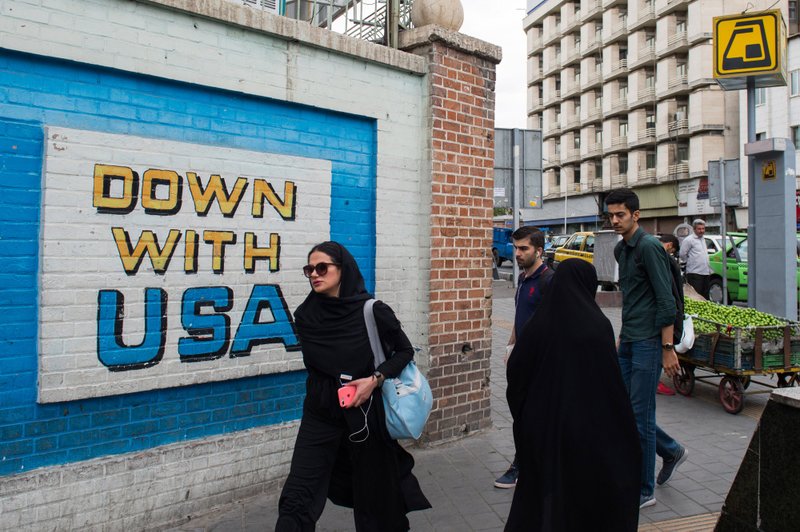Iran is ramping up support to the Taliban in retaliation against President Donald Trump's decision to scrap a historic nuclear deal, Afghan officials said.
Tehran directly supported a Taliban offensive last week against the western city of Farah that's situated near the border between the two nations, Afghan government and police officials said. Fighters from the insurgent group crossed over from Iran, where they had been trained and armed, Farid Bakhtawar, the head of the provincial council of Farah, told Bloomberg.
"Iran is involved in the recent violence and was actually leading the May 15 battle," Fazl Ahmad Sherzad, the police chief of Farah province, said by phone Wednesday. "They have been directly funding and providing arms to the Taliban as Iran sees Farah as part of its strategic interest."
The attack in Farah that killed hundreds points to Tehran's work to undermine Trump's push to bolster security in the war-torn country and ultimately extract the U.S. from its longest war. Along with Iran, Washington points to Russian and Pakistani support for the group it has been battling since 2001, which Moscow and Islamabad have continually denied.
"Trump's decision to pull out of the Iran deal poses a clear and present danger to U.S. war efforts in Afghanistan," Michael Kugelman, a senior associate for South Asia at the Woodrow Wilson Center in Washington, said in an email. It "gives Tehran a strong incentive to ramp up its military support to the Taliban."
Iran's embassy in the Afghan capital didn't answer calls or messages seeking comment. Multiple calls to Iran's foreign ministry seeking comment went unanswered.
More than 300 Taliban fighters as well as dozens of Afghan troops and civilians died in the offensive on Farah before the militants were pushed back by Afghan forces and U.S. airstrikes. In a fresh operation Wednesday, Afghan special forces killed at least 11 Taliban militants including two commanders in the Bala Bolak district of Farah province, the government said.
Iranian support also gives the Taliban less incentive to engage in negotiations, which many in Washington and Kabul see as necessary to end the 17-year conflict. U.S.-backed President Ashraf Ghani in February offered the Taliban unconditional talks, but the insurgent group has responded by stepping up attacks.
Taliban fighters have long entered Afghanistan from neighboring countries, including Iran, said Mohammad Radmanish, a spokesman for Afghanistan's Defense Ministry. Kabul is now investigating Iran's military backing to the group, he said.
Taliban spokesman Zabihullah Mujahed described the allegations of Iranian involvement as propaganda.
"We reject the allegations of Iranian military assistance to the Taliban. Iranians have had some contacts with our political authorities to discuss Afghan peace only," he said via text message.
"Iran's support to the Taliban in the form of weapons and funding leads to further violence and hinders peace and stability for the Afghan people," Secretary of State Mike Pompeo said Monday.
Still, Shiite-ruled Iran and the hard-line Sunni Taliban aren't natural allies. Iran almost declared war against the group after the Taliban stormed the Iranian consulate in the northern city of Mazar-e-Sharif and killed nine diplomats during its rule over the country in 1998.
Tehran even supported the U.S. in its invasion and overthrow of the Taliban regime after the Sept. 11, 2001, attacks. However, as the U.S. presence in Afghanistan drags on and after the Islamic State's emergence in the country four years ago, Iran has more reasons to assist the Taliban.
"The seemingly long-term presence of the U.S. in Afghanistan has prompted fears in Iran that America may use Afghanistan as a base against them," said Samiullah Samim, an Afghan lawmaker who represents Farah province. "The rise of Islamic State, a common enemy both for Iran and Taliban, is another reason that provoked Iran to completely reshape its Afghan policy."
Information for this article was contributed by Golnar Motevalli of Bloomberg News.
A Section on 05/25/2018
